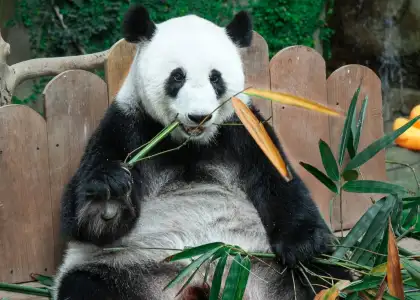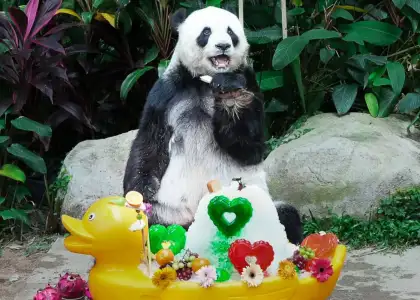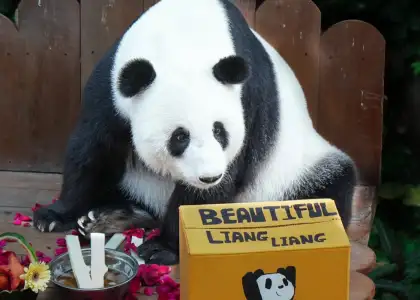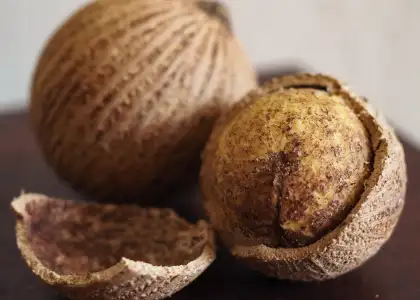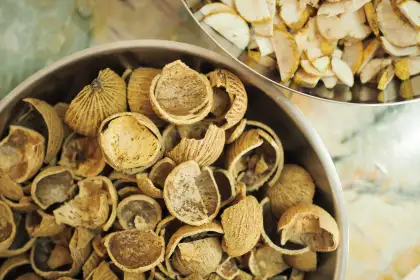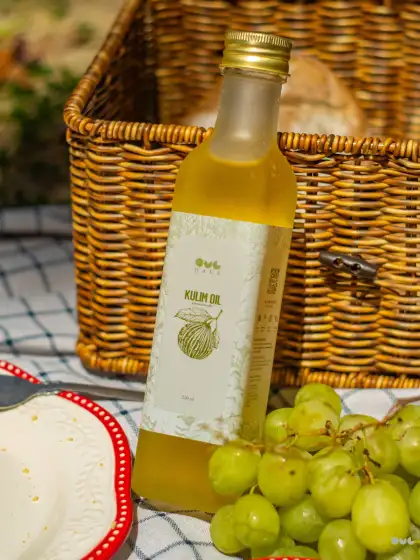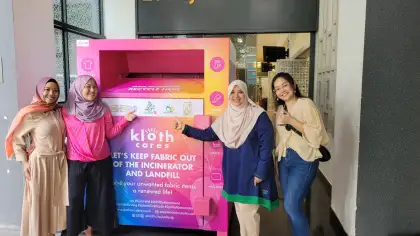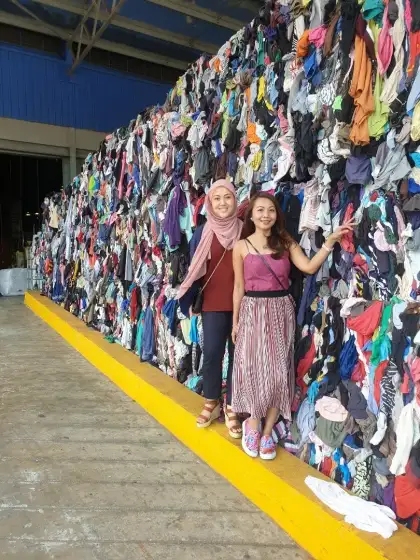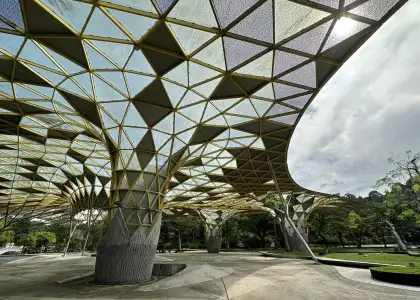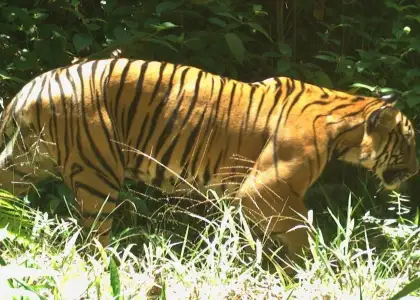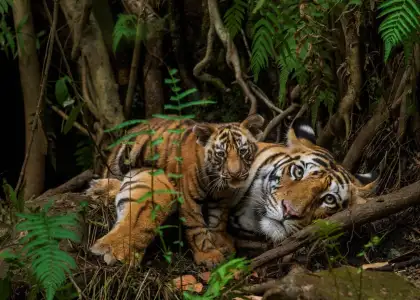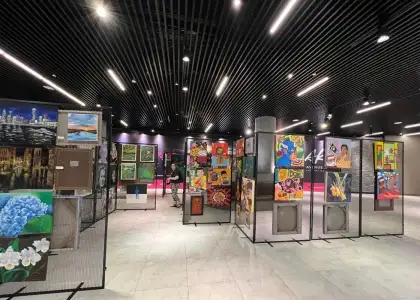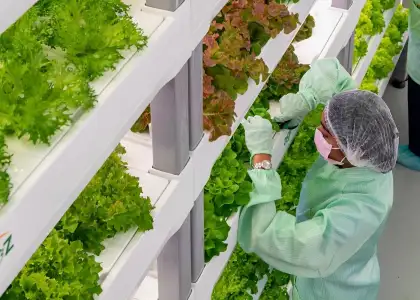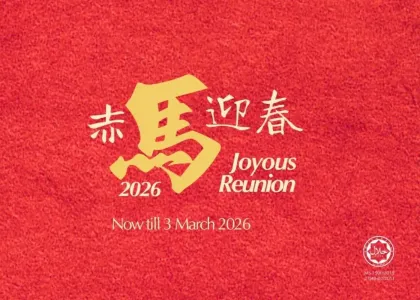Why the Free Tree Society is Giving Away Free Seedlings to Malaysians
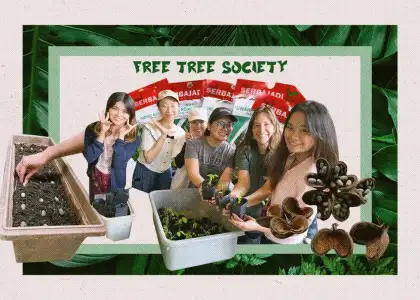
According to Baida Hercus, the vice president and founder of Free Tree Society, much of Malaysia is in need of green spaces. Born in Sabah, the half-Malaysian and half-Australian national carries much compassion for the living, which is ultimately what brought her to founding the charitable organization best known for handing out free seedlings and plants during environmental holidays.
“When I set up Free Tree Society I wanted to achieve two main goals,” shared Baida. “First, the greening of our urban environment and second to create a society of like-minded individuals.” Since the start of her journey at Bangsar Nursery, Baida and her team have given away over 63,000 trees and have educated over 51,000 people about the eco-system and its importance to our lives.
The Beat Asia caught up with Baida herself to find out more about the state of conservation in Malaysia – and why green spaces are ultimately so much more fulfilling than concrete roads and paved parkways.
How was the Free Tree Society founded?
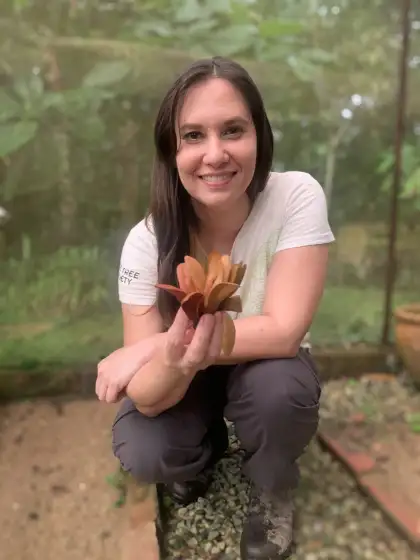
Life is a learning journey and many urbanites have missed out on gardening and caring for the planet because of the city’s built environment. There is too much concrete everywhere, with people choosing to pave over their gardens. Human-tree conflict is a real thing, people are scared of beautiful trees because they drop leaves on their cars, for example.
Ultimately, the Free Tree Society wants to create a community that values our precious environment before it is lost. We have over 1700 flora and fauna threatened with extinction here in Malaysia and we still have some of the highest rates of deforestation in the world. We cannot expect a healthy future at the expense of plundering nature for the benefit of a few.
Do most Malaysians have space for a garden or growing plants in KL? How about in other parts of the country?
People can contribute to nature or rewilding anywhere. It could be a garden, a balcony, school grounds or communal space, an adopted grass verge outside by the roadside, or space by an office building.
In the city, too much bare concrete is so ugly. And it is hot and sterile, who wants to live in a world without birdsong and butterflies?
We know for certain that we cannot continue as we are, encroaching on all the green spaces and overdeveloping them. One of the ways you can help is to speak up about the protection of green spaces, and land conversions - the popular new one is conversion to Mixed Development. We have a glut of development to our detriment. The overdevelopment is not benefiting Malaysians in the ways that matter.
What are your best tips on how to garden or grow plants? How does one become a green thumb?
Come and take part in one of our free workshops! Once you learn how to make healthy soil and learn the basics of growing and caring for plants your thumb will automatically turn green. Like any other topic, gardening is just a skill with knowledge that you need to learn. Start with the basics and keep mastering the art.
What are some of Malaysia’s endemic trees and what makes them special to the ecosystem in the country?
The Intsia palembanica, more commonly known as pokok merbau or Bornean teak. It was chosen as Malaysia's national tree because of its high commercial value. The tree, when chopped down as commercial wood, can fetch a high price.
But when you do not chop this tree down it will instead support the most important animal in the world, the bee. In Malaysia, it is the stingless honey bee, the kelulut. They visit flowers across the jungle and aid in pollination and they also build their nest in the merbau tree. In fact, the merbau is considered sacred to some Orang Asli because of this relationship - they will not chop down trees that bees nest in due to the very important role of bees in the ecosystem.
Pangium edule, is another tree. It's also called the football fruit tree and the fruit is actually poisonous but, through a month-long fermentation process, it becomes edible and is known in Peranakan cooking as buah keluak. Malaysia now gets its processed buah keluak from Indonesia, which seems a shame that we are losing this traditional food heritage knowledge on how to process the fruit.
In your opinion, is the Malaysian government doing enough for conservation? What is the state of conservation like in your country?
Most countries are lacking when it comes to protection of land and sea areas. Malaysia, because of the way it is governed, struggles more than other SEA countries to protect its forests. At this point in the climate crisis, we should have protected more of our old-growth forests many years ago. We only have approximately 18% of primary forests left. Most of what our government counts as forest cover are tree plantations that lack biodiversity, such as land for tigers and elephants. We have far too many animals on the endangered list to be comfortable with equating monoculture plantations to forests as it gives a false sense of accountability.
How do young Malaysians view sustainability or nature conservation? Does their viewpoint give you hope?
We have been in school classrooms where it is clear that some of the kids have never touched dirt - they start with a look of absolute revulsion. But once they see their friends elbow-deep in the soil and having fun, they get over their aversion and join in - we just remind our participants that they can wash their hands after. And they love it.
Many of us today have grown up in a concrete jungle, many now living in apartments in the city where a natural connection with nature is often missing. We don’t let kids touch dirt because it's dirty. Disassociation with nature is at the heart of the problem.
However, jobs in sustainability are also growing. When older students understand this, it helps them to forge a path forward, and to marry their dreams with a sustainability twist giving them a leading edge in today’s job market. As a knowledge-sharing organization hoping to bring about societal change, having this feedback from former volunteers is incredibly rewarding.
Get the latest curated content with The Beat Asia's newsletters. Sign up now for a weekly dose of the best stories, events, and deals delivered straight to your inbox. Don't miss out! Click here to subscribe.








